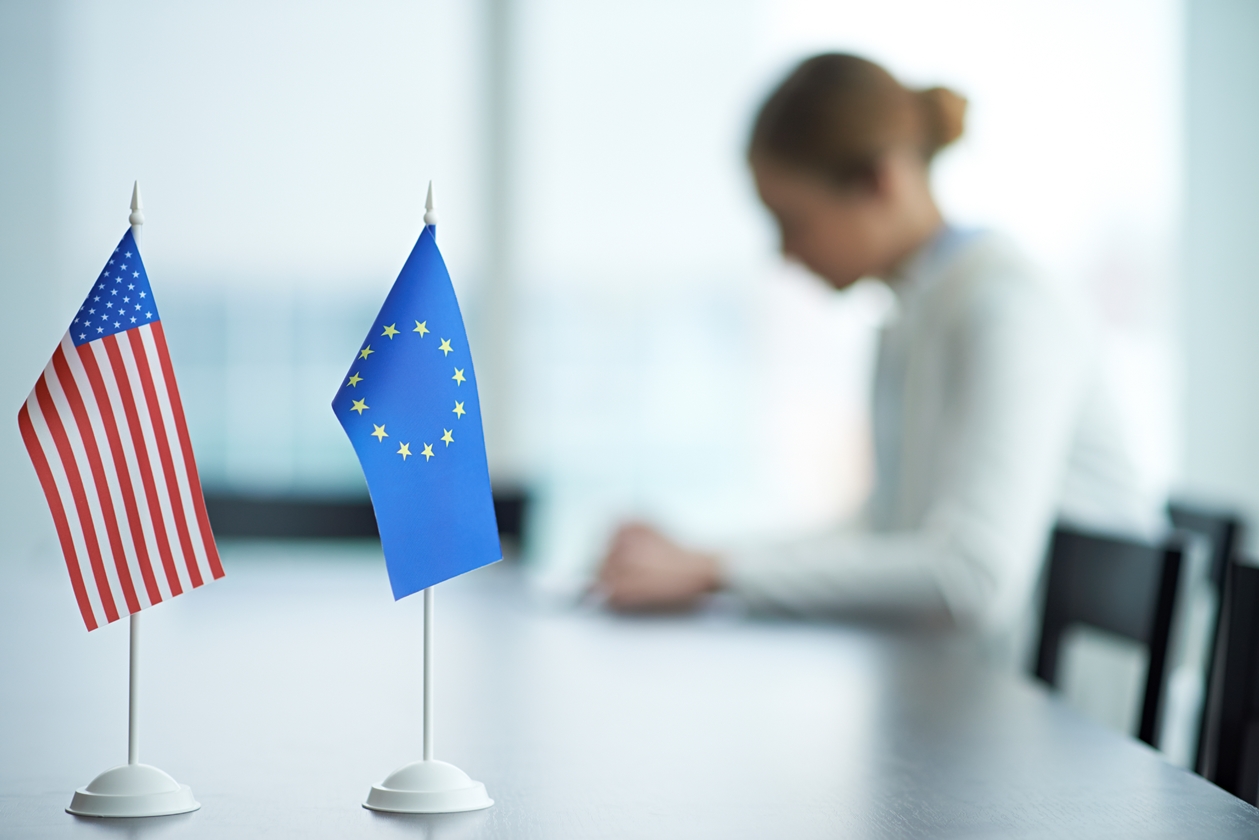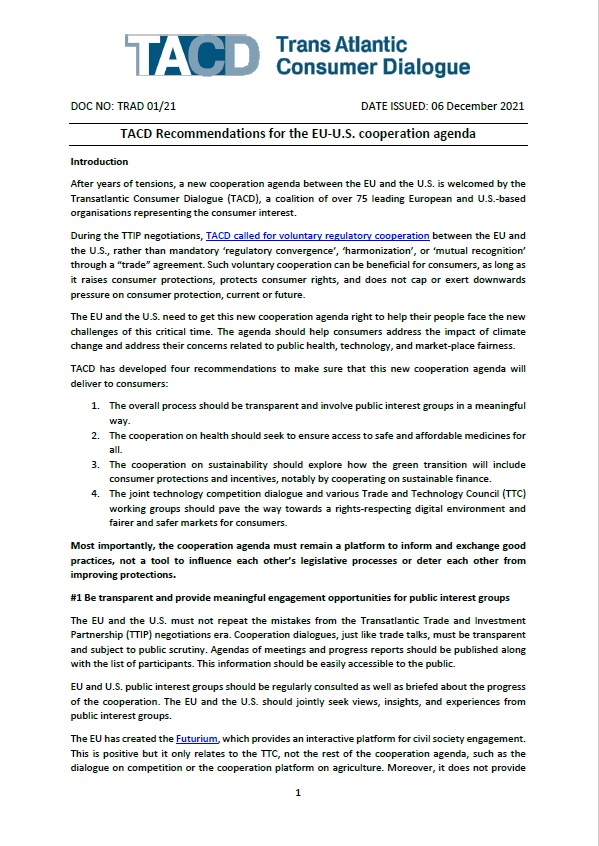EU-US cooperation should make consumer markets fairer and safer, says transatlantic consumer movement
EU-US cooperation should make consumer markets fairer and safer, says transatlantic consumer movement
BEUC NEWS - 07.12.2021
Cooperation between EU and US regulators can improve decision-making about health, environmental, and digital policies on both sides of the Atlantic. Such cooperation should focus on exchanging information and best practices and must not be used as a tool to influence or prevent legislation by either side – says the 78-member Transatlantic Consumer Dialogue (TACD) network.
What are the EU and US planning to cooperate on?
As part of their new cooperation agenda, the European Commission and US Government have set up ‘regulatory dialogues’. These provide a talking shop for EU and US representatives about topics as diverse as sustainable finance, access to medicines, online platforms, or artificial intelligence.
Several dialogues have already been created, such as the Trade and Tech Council, and those on competition and agriculture. Other dialogues on health, sustainability, and consumer affairs could follow.
What is the view of the Transatlantic Consumer Dialogue (TACD)?
The transatlantic TACD network, of which the European Consumer Organisation (BEUC) is a member, welcomes these dialogues as they are voluntary. This is a profound shift from the ‘mandatory convergence’ or ‘harmonisation’ the EU and US sought in the past as they attempted to negotiate a transatlantic trade agreement (known as ‘TTIP’).
TACD advises the EU and US to focus on exchanging information in order to:
- Ensure access to affordable medicines
- Underline the value of existing sustainability policies, such as the EU’s ecolabel and energy efficiency measures, so these are not seen as barriers to trade
- Facilitate the green transition: this includes, for instance, better informing consumers about green financial products
- Foster healthy competition in the digital sector
- Tackle the rise of unsafe and illegal products online
- Protect consumers from surveillance-based advertising
- Prevent the unfair use of artificial intelligence
- Discuss the possibility of an international agreement to reduce roaming surcharges
The success and public acceptance of the above depends on the EU and US being transparent about these talks and allowing civil society to give meaningful feedback as the dialogues unfold.
Any specific advice for the EU?
There could easily be overlap between the different dialogues. That is why BEUC wrote to the European Commission in November to ask: How are all these dialogues overseen? We urged for consistency so that different dialogues do not lead to divergent outcomes on similar topics.
The European Consumer Organisation
Europäischer Verbraucherverband
Bureau Européen des Unions de Consommateurs




